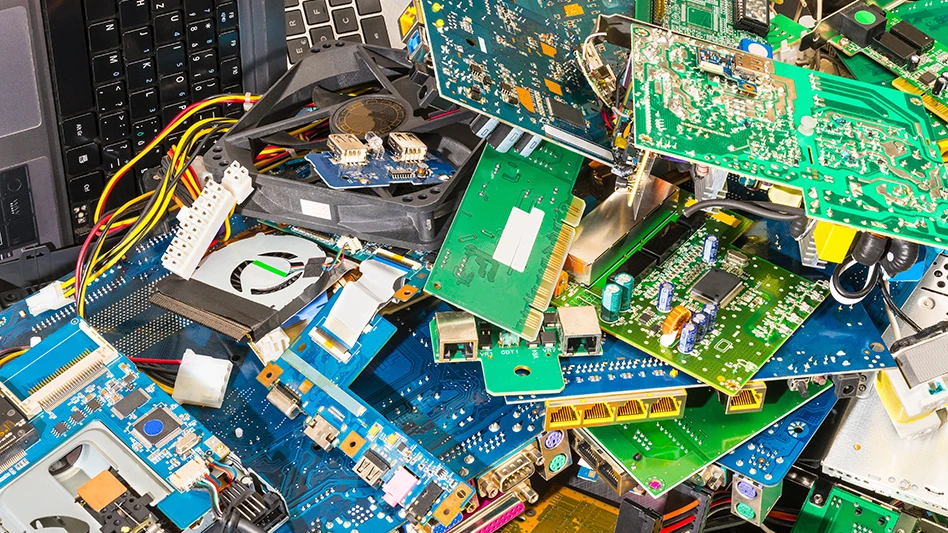
KPixMining | stock.adobe.com
SERI, or Sustainable Electronics Recycling International, a Washington-based electronics sustainability nonprofit organization, has launched a vocational training program for electronics reuse and recycling professionals.
The pilot program, R2U, is slated to begin next spring and will leverage best practices outlined in the organization’s Responsible Recycling (R2) standard to increase knowledge of individuals in the information technology asset disposition (ITAD) industry, prioritizing worker safety, environmental sustainability and data destruction, SERI says.
The program will consist of five courses built around core skills SERI encourages professionals in the electronics reuse and recycling industry to have. The courses will ensure participants gain a thorough understanding of materials in the electronics they are working with; best practices around data protection and destruction, health, safety; and the environmental implications of electronics reuse, recycling and disposal.
RELATED: SERI plans to develop electronics ESG reporting standard
“We’ve scoped out about 40 classes in the total curriculum,” SERI Chief Provocateur Jeff Seibert says, referring to the final iteration of the program.
SERI welcomes individuals and organizations interested in lending their expertise to contribute knowledge, content, photos or videos to develop the courses. Seibert says any additional curriculum will depend on the partnerships SERI develops, adding that it’s still early to reveal the types of courses that will be offered.
“Even though we have a lot of knowledge, we’re really hoping to do this collaboratively,” he says. “We want to bring in different stakeholders so they can take part in what they’re experts in and help us build the courses.”
Though the pilot’s courses are still in early development, Seibert says facilities and individuals already have expressed interest in collaborating.
SERI says inspiration for the R2U program initially came from parts of the world lacking a structural standard for electronics reuse, recycling and disposal, where health, safety and environmental sustainability are concerns.
“What drove us first was looking at the entrepreneurial nature of how much of the world has come together to figure out how to handle electronics,” Seibert says. “We see a lot of the practices not being ideal, not ideal for themselves and their families from a health standpoint [and] not ideal for protecting the environment.”
While attempting to formalize and expand education around electronics recycling, SERI found its audience was much broader than anticipated.
“There’s a lot of highly technical stuff as you go all the way up the ladder that can be learned as well,” Seibert says.
He adds that after early feedback, individuals from certified facilities have expressed interest in the program as an internal training tool. In that case, SERI could look to tailor certain aspects of the program to serve as training for specific companies and facilities. Seibert says consultants also have indicated the program could help them learn about the technical side of electronics recycling and reuse, allowing them to better serve customers in the ITAD industry.
SERI plans to distribute the program online for free. It will consist of an on-demand set of courses, where individuals can choose what to take to fill gaps in their own knowledge base. Though there could be assessments, there will be no certification or accreditation at the end of the free program.
“There’s potential in the future for a paid version that has more testing structure behind it,” Seibert says, which could result in accreditation. “At the free version … it’s an educational opportunity.”
Seibert describes the ITAD industry as informal and entrepreneurial in many parts of the world. This, combined with a low barrier to entry, has resulted in an industry with few global certification standards, making it difficult for some facilities to become certified. The U.S. Environmental Protection Agency (EPA) cites two accredited electronics recycling certification standards, one of them being SERI’s R2 program. While the R2 program ensures recycling facilities are operating with environmental, employee health and security practices in mind, R2U allows individuals to do the same.
Seibert says he recognizes that small facilities might not be able to meet R2 certification as easily as large businesses. R2U allows for gradual improvement, so facilities not yet certified can ensure individuals are employing best practices.
“[R2U] is to fill the gap that exists in skills and knowledge within the electronics reuse and recycling industry,” Seibert says. “Beyond just becoming certified, we can help raise the bar across the world for all people working in this industry, regardless of where they’re coming in at.”
Latest from Recycling Today
- Green Cubes unveils forklift battery line
- Rebar association points to trade turmoil
- LumiCup offers single-use plastic alternative
- European project yields recycled-content ABS
- ICM to host colocated events in Shanghai
- Astera runs into NIMBY concerns in Colorado
- ReMA opposes European efforts seeking export restrictions for recyclables
- Fresh Perspective: Raj Bagaria






